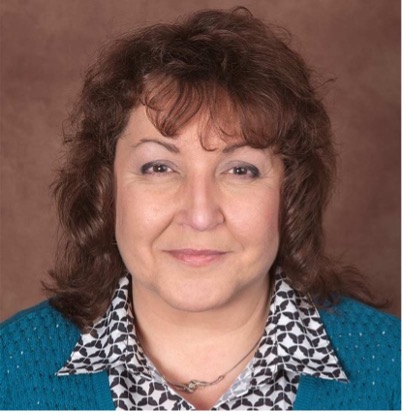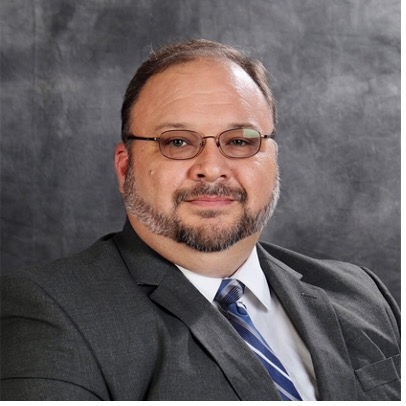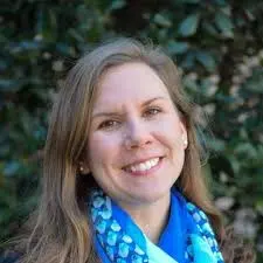The ECMC Foundation recently announced a total of $98,500 in funding for 20 projects as part of the Career and Technical Education Leadership Collaborative. This collaborative consists of six fellowship groups and is a multi-faceted approach to advance postsecondary career and technical education. The ECMC Foundation received a record number of submissions this year from Fellows across all six fellowship programs. Dr. James Bartlett, project Co-Pi, expressed it is “exciting seeing the Fellows’ achievements in securing funding to support their research. This success not only advances their academic careers but also contributes significantly to the future of postsecondary careers and technical education."
The Postsecondary CTE Research Fellows Program at Old Dominion University, sponsored by ECMC Foundation provides postsecondary CTE researchers training in research methods, mentoring, and networking to strengthen the pipeline of to advance the field. Fellows participate in a year-long program led by James Bartlett, II, Ph.D. and Michelle E. Bartlett, Ph.D. ODU DCEPS faculty. ECMC Foundations sponsors mini-grant projects that fellows from all six fellowship in the Collaborative can apply for. This year out of the 20 projects selected, 6 of the recipients are ODU Fellows.
The projects funded this year encompass a variety of initiatives aimed at promoting equity and advancing improvements in postsecondary CTE. These initiatives include analyzing workforce data, implementing innovative training programs, enhancing employment pathways, improving carceral education, launching support networks for students and educators, and more. This year’s projects are positioned to impact student success, examine the alignment of education and workforce demandes, inform quality implementation at postsecondary CTE and provide long-term innovation in the field. In a statement highlighting the mini-grant work, Dr. Michelle Bartlett praised the efforts saying “these Fellows are conducting essential research that addresses critical gaps in postsecondary CTE. Their work underscores the importance of having highly-qualified CTE researchers making meaningful impact.”
Congratulations to the ODU Mini Grant Program Recipients! Read about their research below:
Do Postsecondary CTE Programs Align with Locally Available Jobs?
Sophie McGuinness (The CTE Research Program at Old Dominion University) will use public workforce and postsecondary data to monitor whether students have access to career and technical education (CTE) programs that lead to available jobs in their local communities. The goal is to improve understanding of regional alignment between CTE programs and available jobs in order to determine postsecondary CTE access, evidence which is largely missing at a national scale.
Postsecondary CTE Teacher Recruitment, Training and Retention Toolkit: A Nationwide Search 2025
Lisa Martino (The CTE Research program at Old Dominion University) – in partnership with Sara Shaw, PhD (The CTE Research program at Old Dominion University) – will compare different state plans for recruitment, training and retention of career and technical education (CTE) teachers while identifying best practices for each aspect. The goal is to add on to a previous project, which created a toolkit providing information to recruit, prepare and retain “quality CTE teachers” who will impact and promote equity in postsecondary CTE education.
Understanding the CTE Training and Labor Market Gap
Steven Smith (The CTE Research Program at Old Dominion University) will research how community colleges respond to rapid changes in technology, structure and policy within their limited budgets and facilities. The goal is to identify barriers and possible remedies for training job-ready staff and leaders for a competitive and changing career and technical education (CTE) labor market.
Soaring to Greater Heights: A Peer-Supported Career Coaching Group to Enhance Career Readiness
Mia Kennedy (The CTE Research Program at Old Dominion University) will create a safe, peer-supported space and online resource for underserved student groups to support each other in career exploration, self-discovery and goal setting. The goal is to empower students in their career journeys, enhance self-awareness and career decision-making and ensure equitable access to high-quality career and technical education (CTE) programs.
Filling the Gaps: Addressing the Recruitment and Retention of Postsecondary CTE Faculty (Phase 2)
Brandon Hensley (The Postsecondary Leadership Success Program at ACTE) – in partnership with Sophia Alston (The Postsecondary Leadership Success Program at ACTE); Jodi Adams (The CTE Research program at Old Dominion University); and Linda Van Doren (The CTE Research Program at Old Dominion University) – will conduct interviews with career and technical education (CTE) faculty to expand on phase one of this project (2023–2024) that revealed a discrepancy between existing research that shows a shortage of CTE faculty and survey results indicating high job satisfaction and low desire to change employers. The goal is to develop evidence-based recommendations that institutions can implement to enhance their CTE faculty recruitment and retention strategies.
Facilitating Equity Across Postsecondary Career and Technical Education: Identifying and Addressing Enrollment and Outcome Disparities for Women and Historically-Marginalized Populations
Jordan Dolfi, Ed.D. (The CTE Research program at Old Dominion University) – in partnership with Sara Shaw, PhD (The CTE Research Program at Old Dominion University) – will conduct comprehensive research exploring potential disparities in access and outcomes for women and historically underrepresented populations within high-quality career and technical education (CTE) programs, which tend to be aligned with higher-skill work and higher-wage occupations. The goal is to increase high-quality CTE program accessibility and outcomes for these groups, increase awareness among educators and industry leaders on the importance of equity in CTE and the need for inclusive practices, and influence policymakers to support a more inclusive environment.









